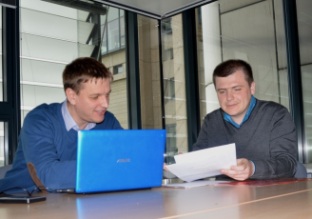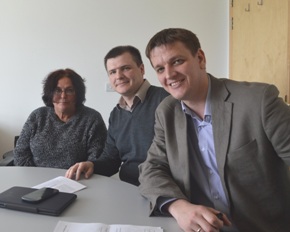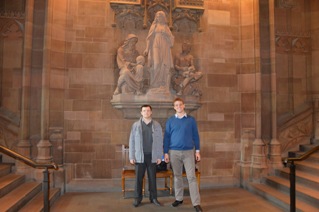Research on professional identity of lecturers at British universities

The researchers have taken over 20 in-depth interviews, each about an hour long, with British lecturers, researchers and administrative staff.
All informants come from a TOP-100 lead group of universities according to the world rankings – University of Birmingham, Manchester and Leeds, to name a few.
We consider a university community as a special corporation which formed in Russia in the 19th century and much earlier in Europe. This community has always played one of the key roles not only in the academy but also in cultural, political and economic processes in society, – says Mikhail Gribovskiy. By professional identity we mean a set of perceptions of a person about his/her profession and him or herself in the profession.

The processing of the interviews will take us some time, however we can now note that differences between British and Russian lecturers are quite striking, – says Alexander Sorokin. – These have to do with career building: in Britain, young specialists, as a rule, do not stay to work at the same university they graduated from. Also, British academics maintain mostly working relationships, rather than those of friendship, and the distance between a university lecturer and a student is less.

Mikhail Gribovskiy and Alexander Sorokin have already arranged to take online interviews with a number of Sheffield and London universities faculty members. The research is still ongoing and the geographical scope of it is to be broadened covering universities of Germany, France and Eastern Europe. It is being carried out within the LSAR project ‘Man in a Changing World. Identity and Social Adaptation: Past and Present’.





 The project "Man in a Changing World. Identity and Social Adaptation: Past and Present" is funded by the Russian Government
The project "Man in a Changing World. Identity and Social Adaptation: Past and Present" is funded by the Russian Government 